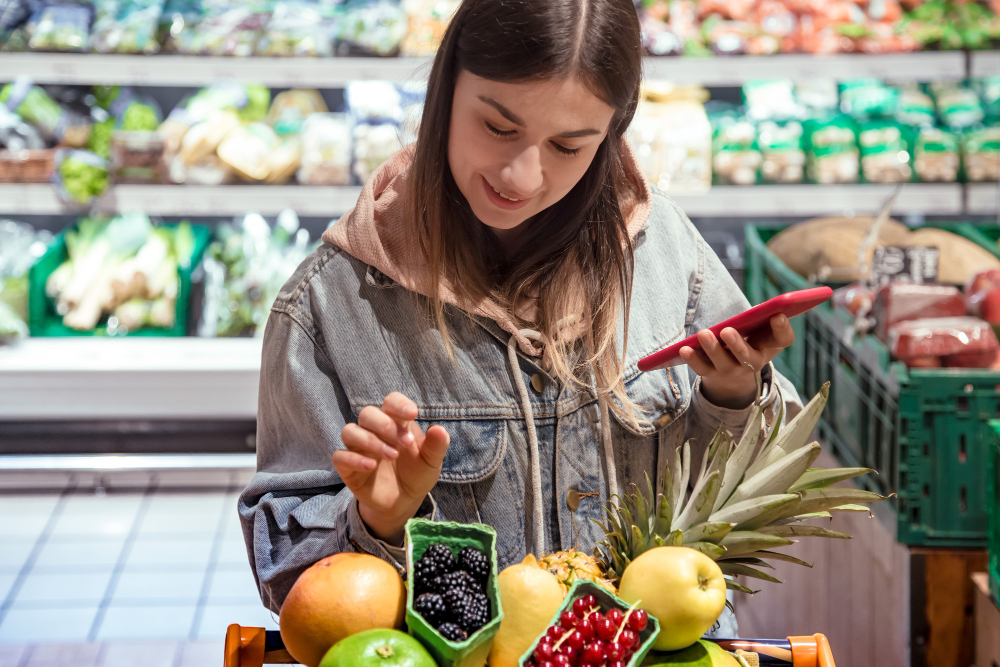Inflation-Proof Grocery Hacks to Slash Your Food Bill in 2025
Discover the best inflation-proof grocery hacks of 2025 to save money, reduce waste, and shop smarter—even when prices rise.
Beat rising prices with smart grocery strategies that protect your wallet.
Food prices aren’t what they used to be. Every trip to the supermarket feels like a guessing game—will eggs cost more than last week? Are your favorite items on sale or mysteriously missing?
With inflation hitting hard, families and individuals alike are looking for real, practical ways to make their grocery money go further.
The good news? There are clever, inflation-proof grocery hacks that actually work. No extreme couponing required—just smart adjustments that deliver big savings without sacrificing quality or nutrition.

1. Embrace Unit Pricing—Every Time
Don’t let flashy packaging fool you. The real cost of any product is in the unit price—how much you’re paying per gram, ounce, or liter.
Always compare this small print across brands and sizes. Often, bulk items cost less per unit, but not always. Check the shelf label and do quick math if needed. It’s one of the simplest habits with the biggest return.
2. Use the Freezer Like a Budget Tool
Buying meat, vegetables, and bread in bulk? Freeze portions immediately. This prevents waste, helps you cook when it’s convenient, and locks in today’s prices against tomorrow’s hikes.
Chop and freeze onions, bell peppers, and fruit for smoothies. Store leftovers in freezer-safe containers and label them clearly. Less spoilage means less spending.
3. Plan Meals—But Stay Flexible
Rigid meal plans can backfire during inflation. Instead, make a flexible weekly plan based on what’s on sale or in season.
Let store flyers guide your proteins and produce picks. If chicken thighs are 40% off, they become the centerpiece. Use apps like Flipp or Basket to find weekly deals near you.
4. Build a Price Book
Track what you typically pay for essentials like eggs, milk, pasta, and oil. Whether in a notebook or phone app, a price book gives you power.
When you spot a great deal, you’ll know it’s time to stock up. This habit takes time to build but can save hundreds annually.
5. Rethink Brand Loyalty
Store-brand items are often produced by the same manufacturers behind national brands—but at a fraction of the price.
Try a few generic swaps each week. Compare taste and quality. You might be surprised to find your new favorites hidden in plain sight.
6. Avoid Pre-Chopped, Pre-Packaged Items
Convenience comes at a cost. A bag of pre-chopped lettuce or diced fruit often costs double compared to whole produce.
Spend a few extra minutes prepping at home to save major cash. You’ll also reduce plastic packaging, adding an eco-friendly bonus.
7. Shop with a “Pantry First” Mindset
Before you write a shopping list, check your pantry, freezer, and fridge. Plan meals using what you already have.
This cuts down on overbuying and helps rotate your existing supplies, avoiding forgotten cans or freezer-burnt leftovers.
8. Join a Loyalty Program or Cashback App
Most grocery chains now offer rewards cards that track your purchases and offer personalized discounts.
Combine those with cashback apps like Ibotta or Fetch Rewards. Scan your receipts and earn money back on everyday purchases—it adds up faster than you think.
9. Cook Once, Eat Twice (or More)
Batch cooking isn’t just for big families. Make chili, pasta sauces, soups, or casseroles in larger quantities.
Portion them into freezer containers for future meals. You’ll reduce midweek stress, energy bills, and food costs—all while avoiding expensive takeout.
10. Shop Alone and Eat First
Impulse buys thrive in full carts and empty stomachs. Shopping alone reduces distractions, and eating beforehand helps you stay focused.
Make a list and stick to it. Temptation costs money, especially when prices are high.
Conclusion
Inflation doesn’t mean defeat. With the right habits, your grocery routine can become a powerful defense against rising prices.
Each of these hacks works on its own—but combined, they form a solid strategy that keeps you in control. Grocery shopping will always be necessary. Why not make it smarter, savvier, and less stressful?
Your wallet—and your dinner table—will thank you.





